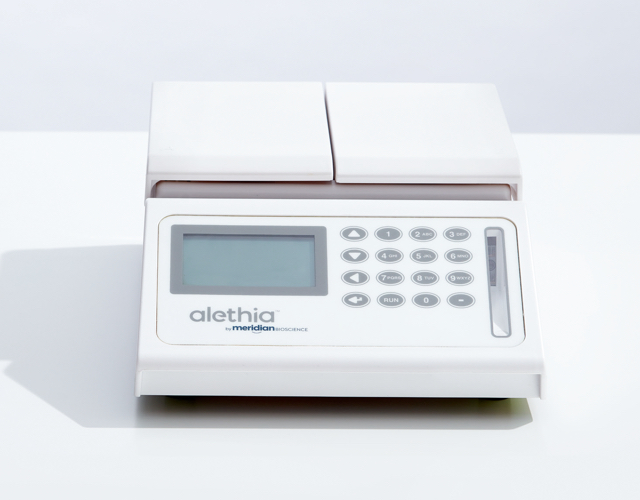Definitive answers, confidence in results
Definitive answers, confidence in results
Related Tests
- Healthcare Acquired Infections Alethia® C. difficile
- Pediatric & Neonatal Alethia® CMV Alethia® Group B Streptococcus
- Respiratory Alethia® Mycoplasma Direct Alethia® Pertussis Alethia® Group A Streptococcus
- Sexual Health Alethia® HSV 1&2
Support & Documents
Downloadable PDFs
Webinars & Videos
FAQs
Early symptoms of Bordetella pertussis (B. pertussis) are nonspecific and can resemble many other infections, like the common cold. An early and accurate diagnosis is necessary to treat the patient appropriately to lessen the severity of illness and prevent the spread of infection to others.
- Bordetella parapertussis (B. parapertussis) is a bacteria like B. pertussis and causes pertussis-like symptoms, but it does not produce the pertussis toxin. The symptoms of B. parapertussis are typically milder and have a shorter duration than what is seen with B. pertussis.
- Unlike B. pertussis, B. parapertussis is not a nationally notifiable disease, so there is no specific case definition, and there are no national guidelines for the treatment or public health management of B. parapertussis infection. – Like B. pertussis, B. parapertussis is susceptible to macrolides and trimethoprim-sulfamethoxazole. Therefore, treatment is the same for both organisms
While highly specific, culture for B. pertussis has a variable sensitivity, because fastidious growth requirements make it difficult to transport and isolate the organism. Culture sensitivity typically ranges from 12% to 60% and declines with the duration of illness. Culture is usually much less sensitive than molecular assays, in part because the organism is highly labile and does not survive well during specimen transport. Additionally, culture can typically take 1-2 weeks to finalize a result.
- Recommended by the CDC and IDSA
- Rapid results allow clinicians to collect, test and treat patients the same day, resulting in decreased severity of symptoms and prevention of additional cases
- Does not require viable (live) bacteria in the specimen in order to detect the presence of B. pertussis.
- Increased sensitivity means fewer false negatives
The recommended antimicrobial agents for treatment of pertussis are azithromycin, clarithromycin and erythromycin. Trimethoprim-sulfamethoxasole can also be used.
1. https://www.cdc.gov/pertussis/about/faqs.html
2. Wedelboe, Aaron Mark, and Annilies Van Rie. “Diagnosis of pertussis: a historical review and recent developments.”(2006): 857-864.
3. Loeffelholz.M. Towards Improved Accuracy of Bordetella pertussis Nucleic Acid Amplification Tests. J. Clin. Microbiol.2012, 50(7):2186.
Alethia® Pertussis – 87798
Pricing
To order, contact your regional sales representative or use the following contact information:
- Email: sales@meridianbioscience.com
- Phone: +1 800 696-0739
- International Sales Extension: +1 513 271-3000

